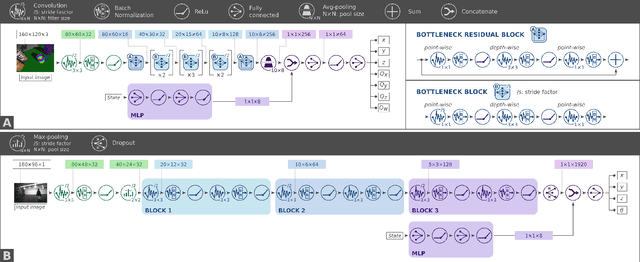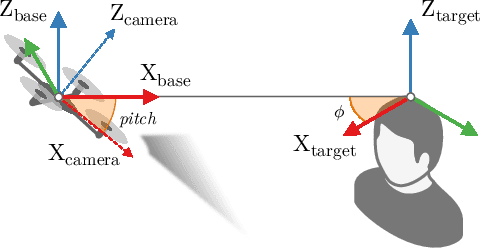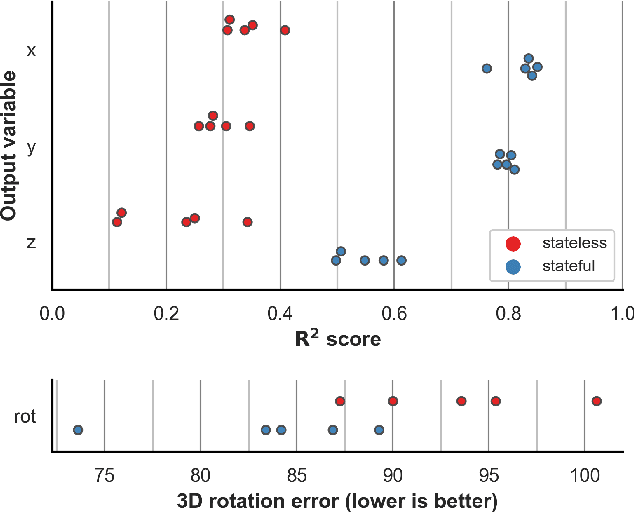Vision-State Fusion: Improving Deep Neural Networks for Autonomous Robotics
Paper and Code
Jun 13, 2022



Vision-based perception tasks fulfill a paramount role in robotics, facilitating solutions to many challenging scenarios, such as acrobatics maneuvers of autonomous unmanned aerial vehicles (UAVs) and robot-assisted high precision surgery. Most control-oriented and egocentric perception problems are commonly solved by taking advantage of the robot state estimation as an auxiliary input, particularly when artificial intelligence comes into the picture. In this work, we propose to apply a similar approach for the first time - to the best of our knowledge - to allocentric perception tasks, where the target variables refer to an external subject. We prove how our general and intuitive methodology improves the regression performance of deep convolutional neural networks (CNNs) with ambiguous problems such as the allocentric 3D pose estimation. By analyzing three highly-different use cases, spanning from grasping with a robotic arm to following a human subject with a pocket-sized UAV, our results consistently improve the R2 metric up to +0.514 compared to their stateless baselines. Finally, we validate the in-field performance of a closed-loop autonomous pocket-sized UAV in the human pose estimation task. Our results show a significant reduction, i.e., 24% on average, on the mean absolute error of our stateful CNN.
 Add to Chrome
Add to Chrome Add to Firefox
Add to Firefox Add to Edge
Add to Edge